OOP, metaprogramming, blocks, iterators,

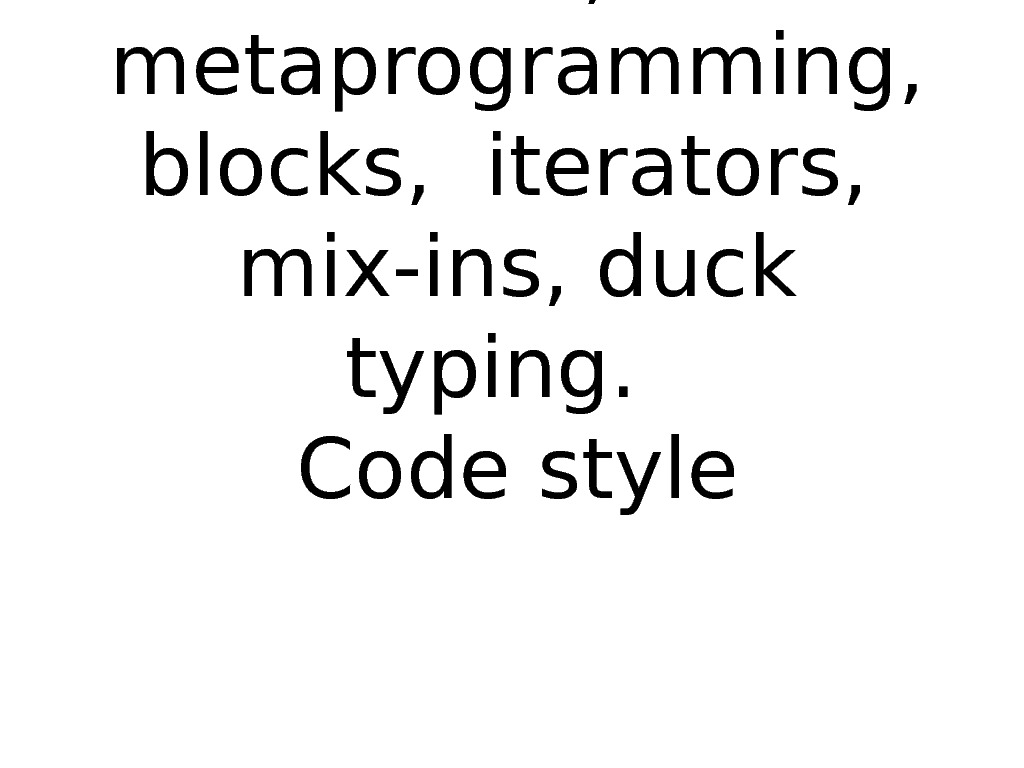

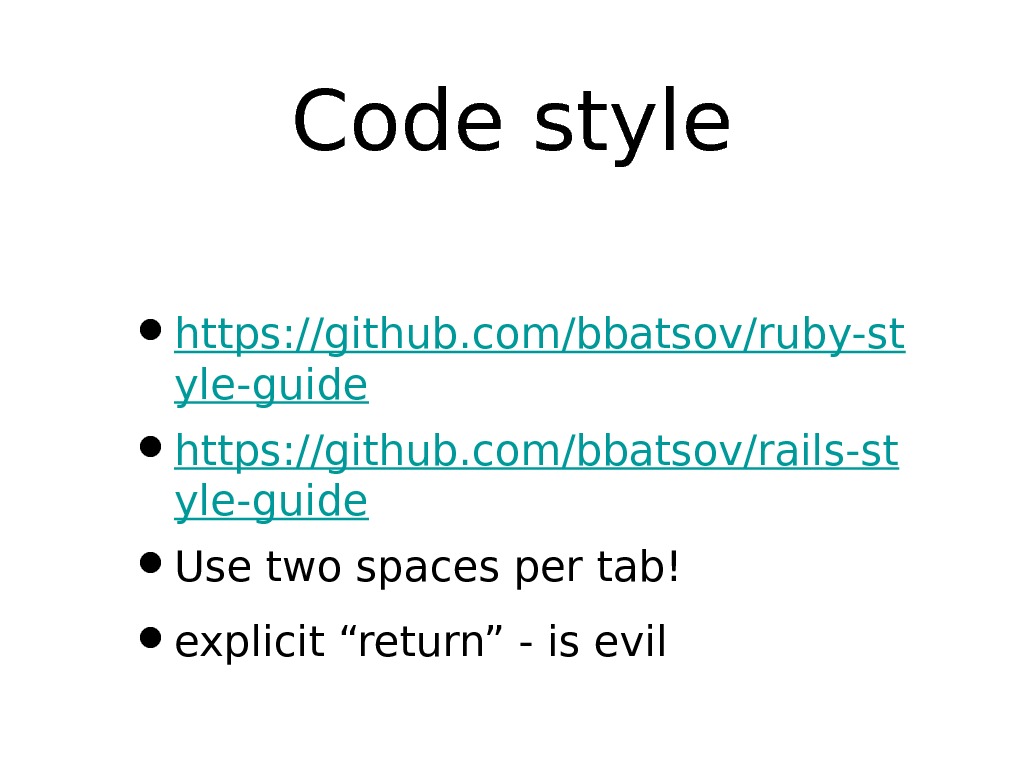
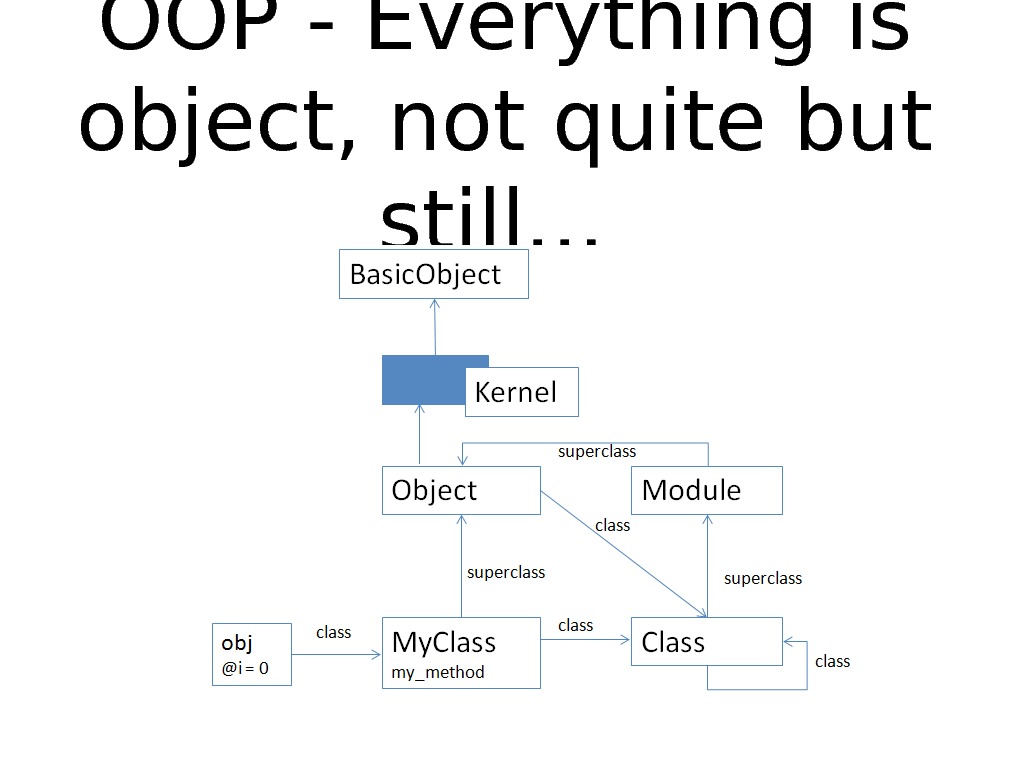
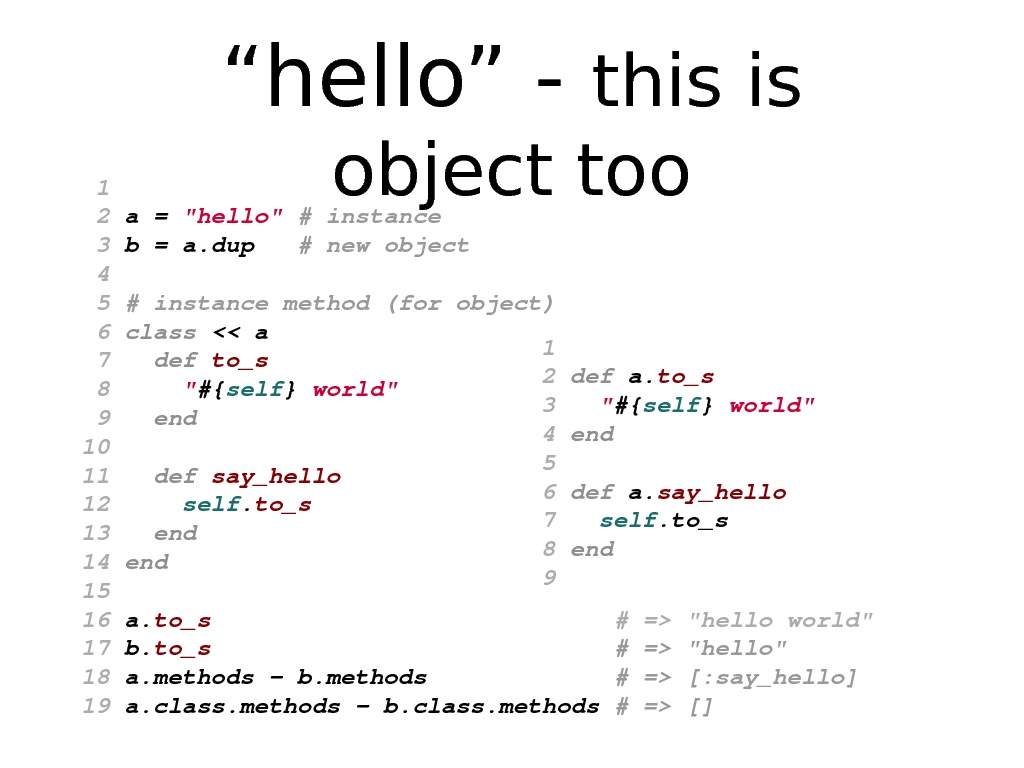
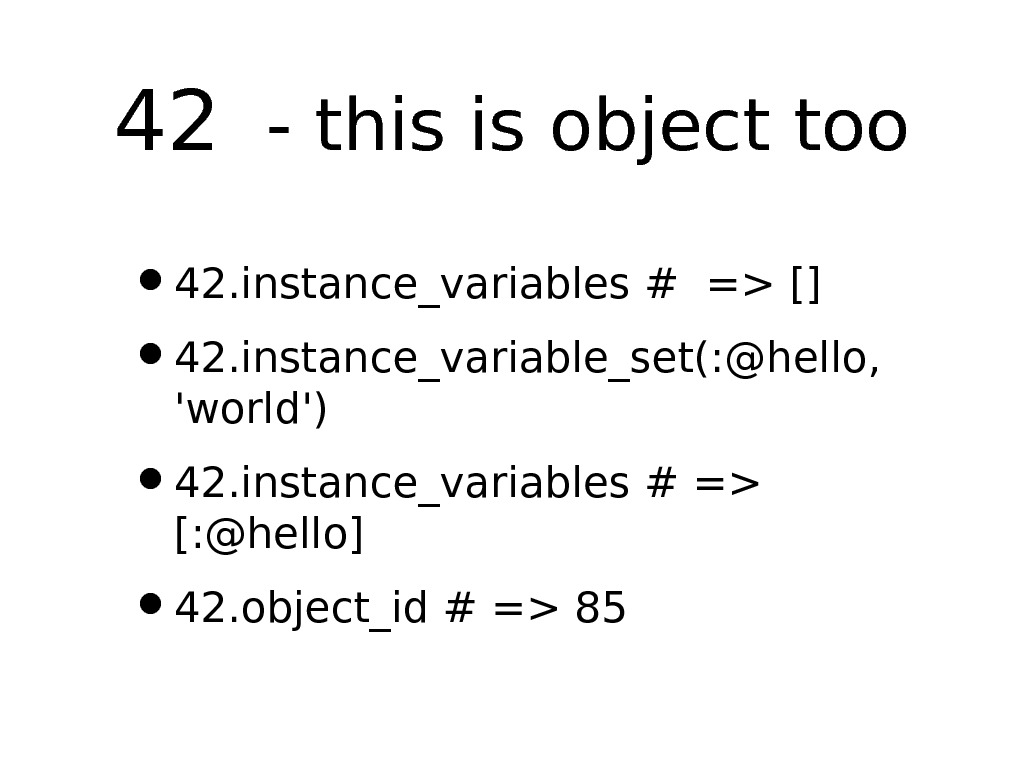

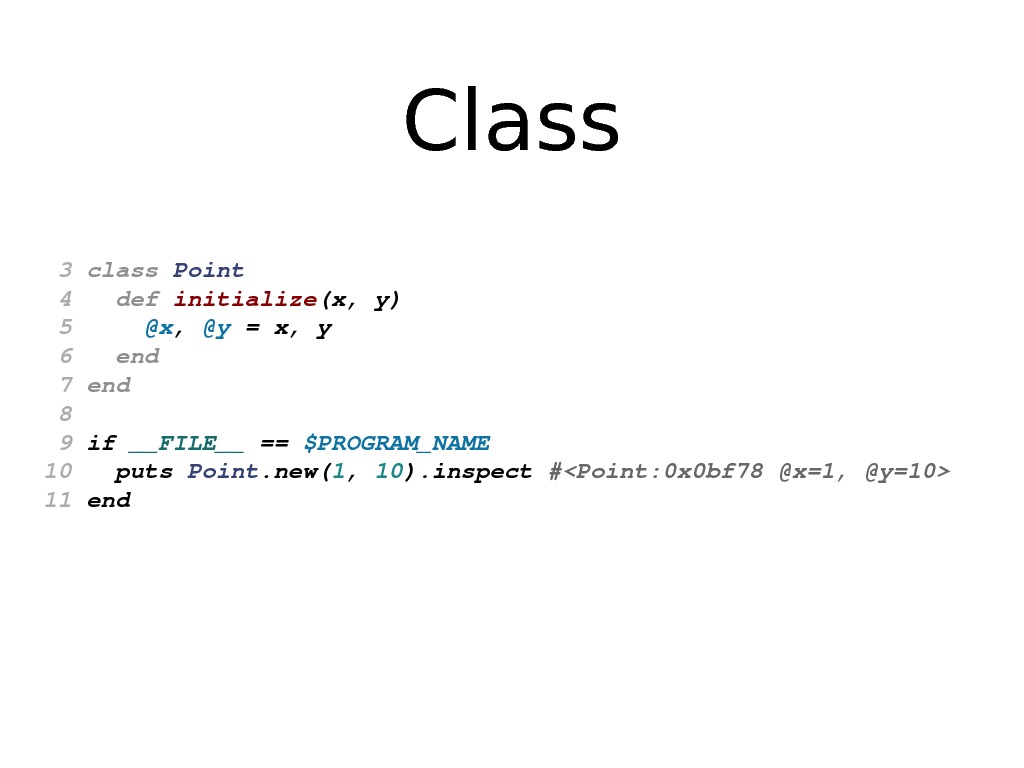
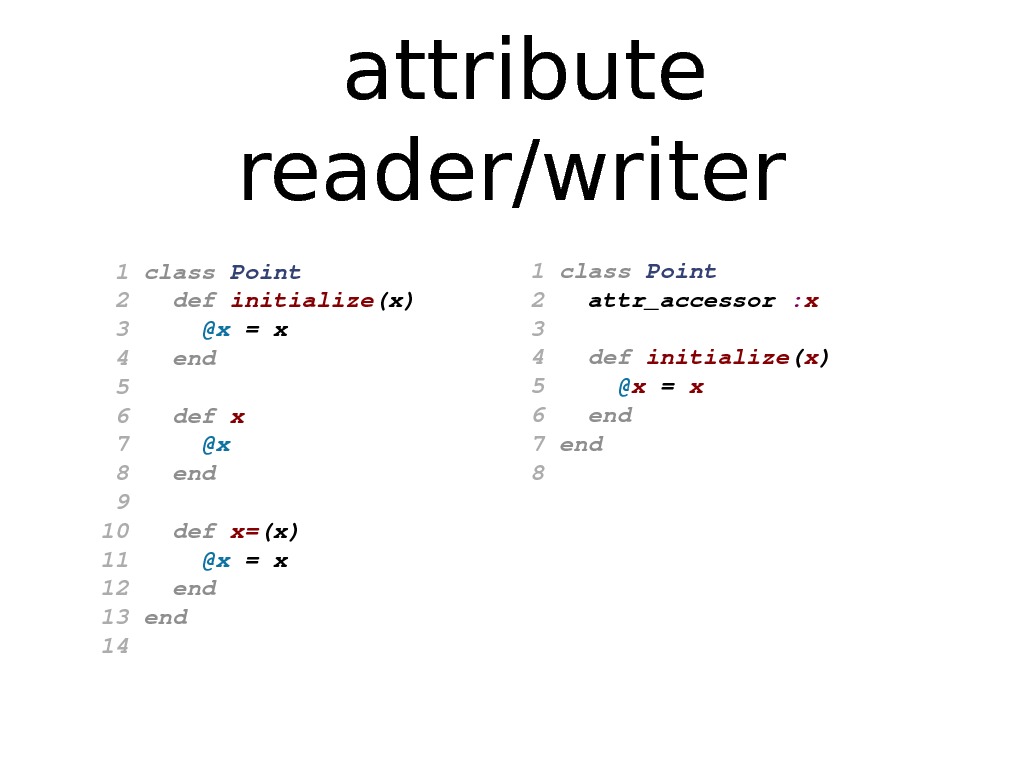
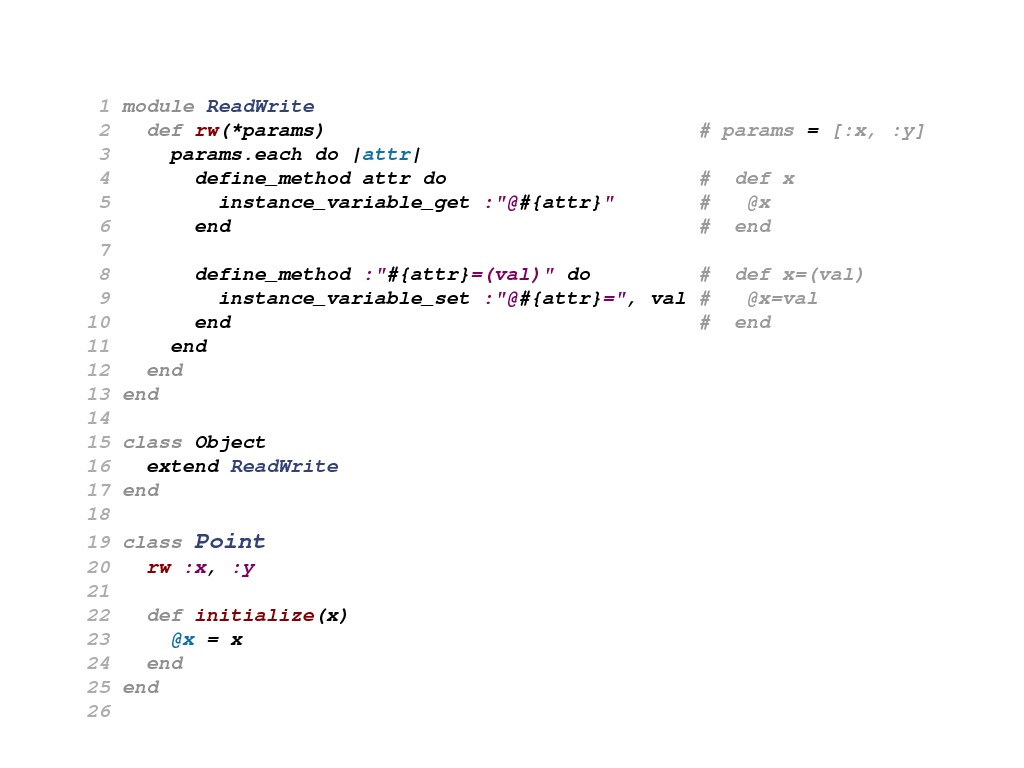
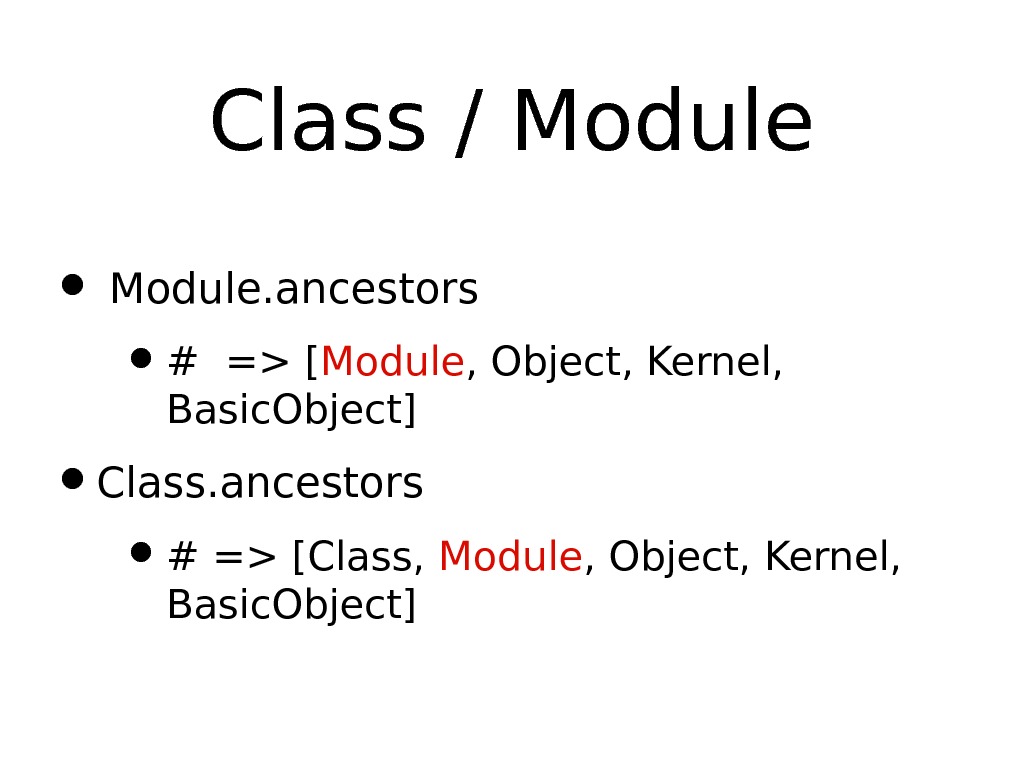
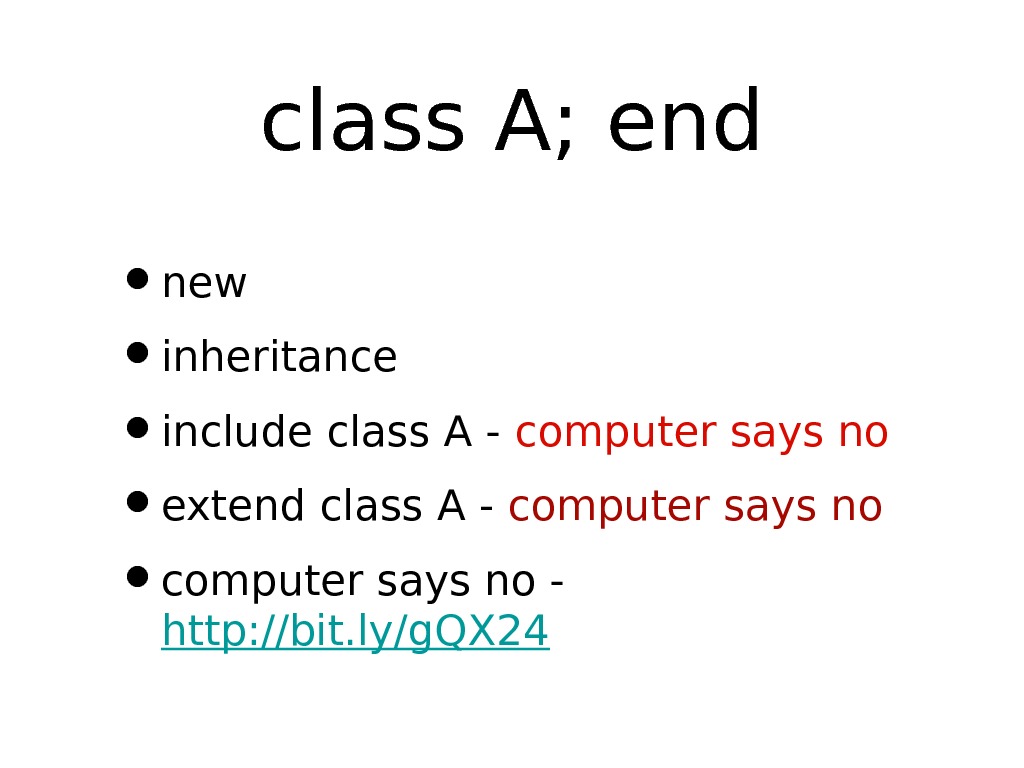
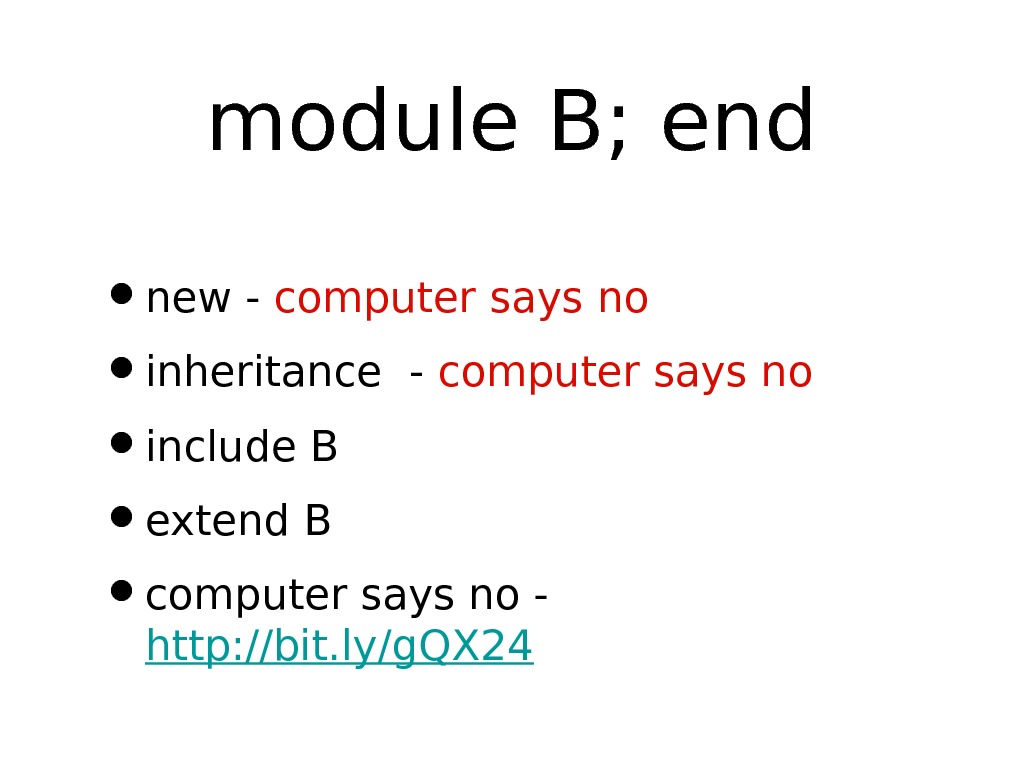
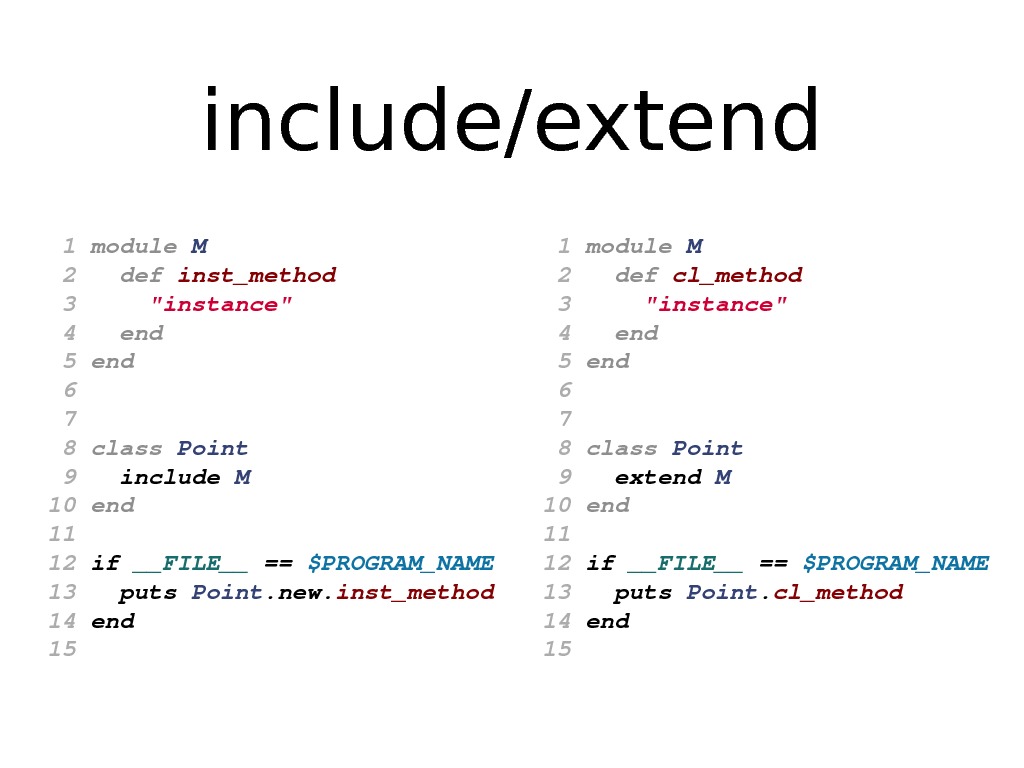
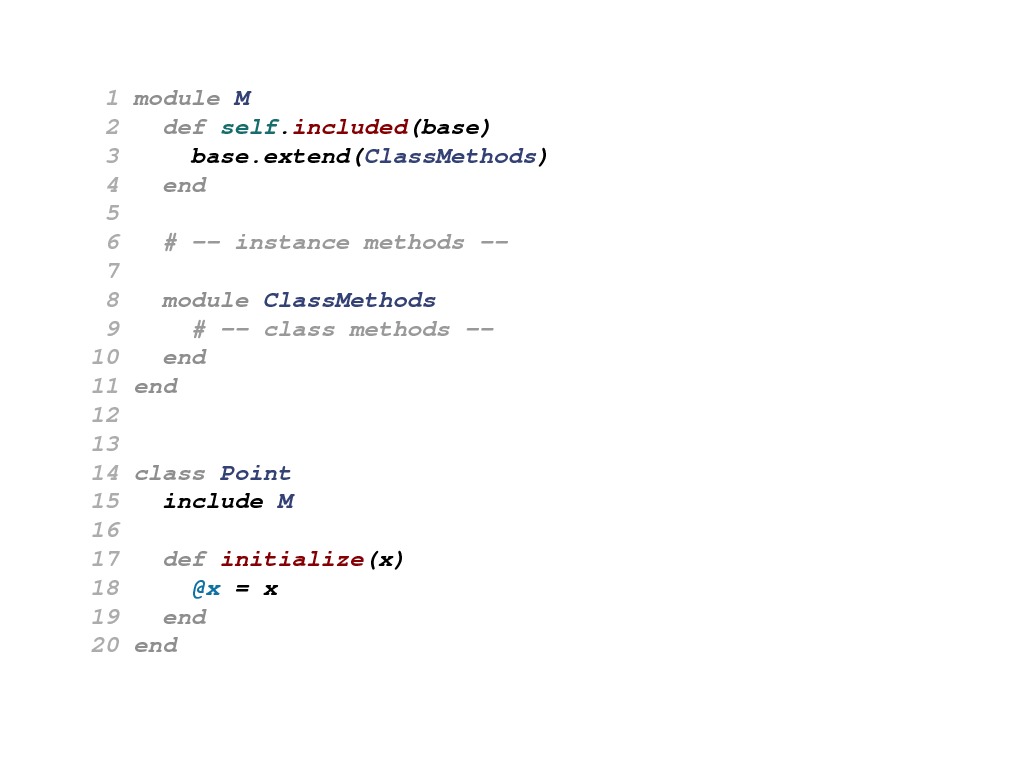
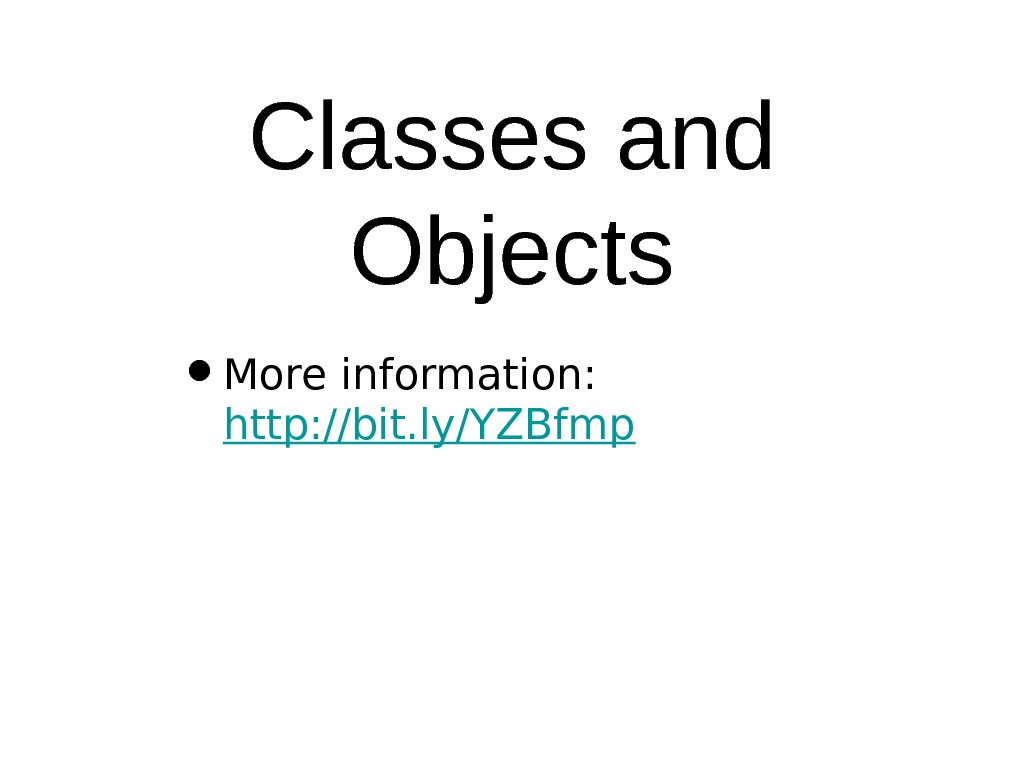
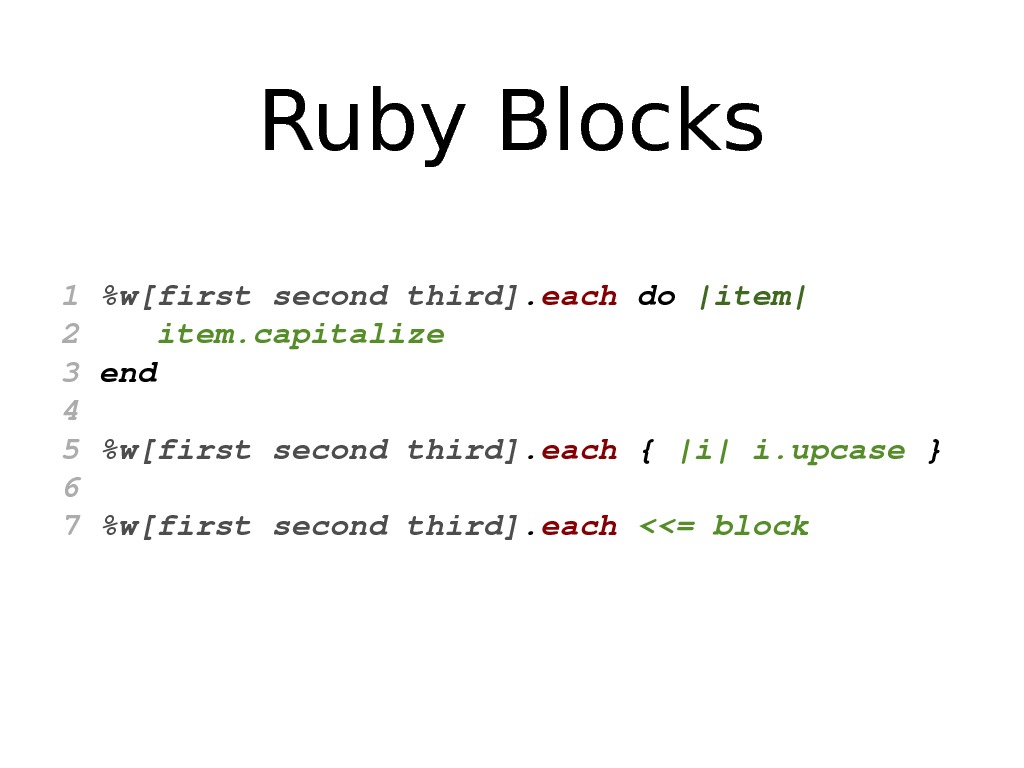
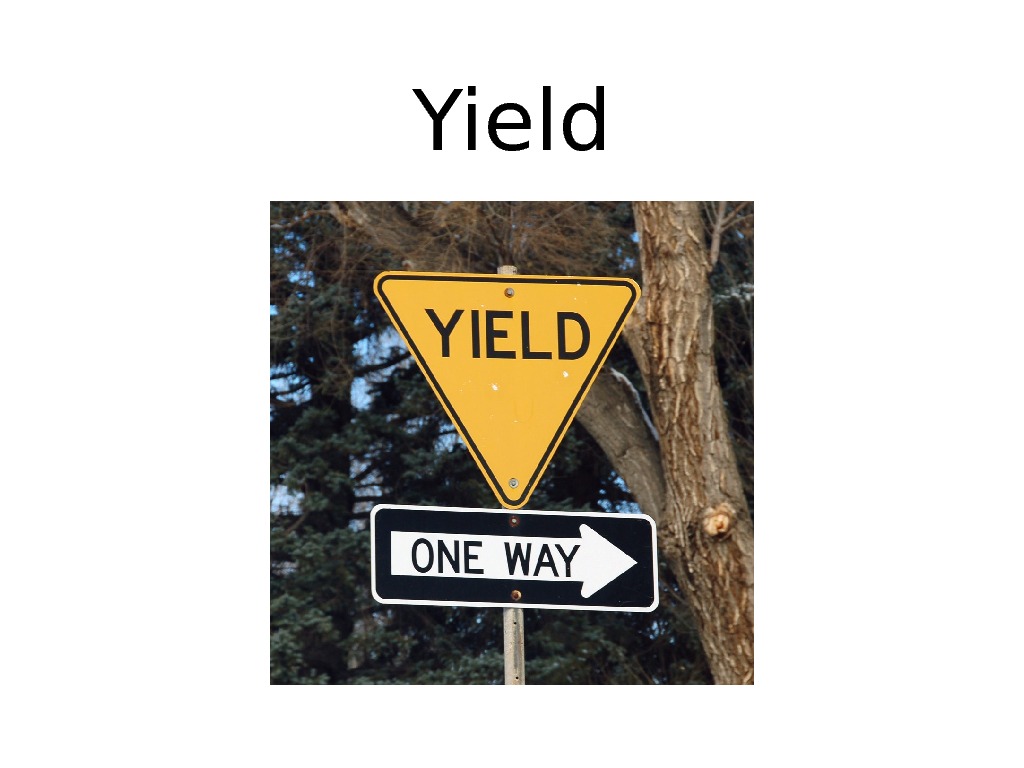
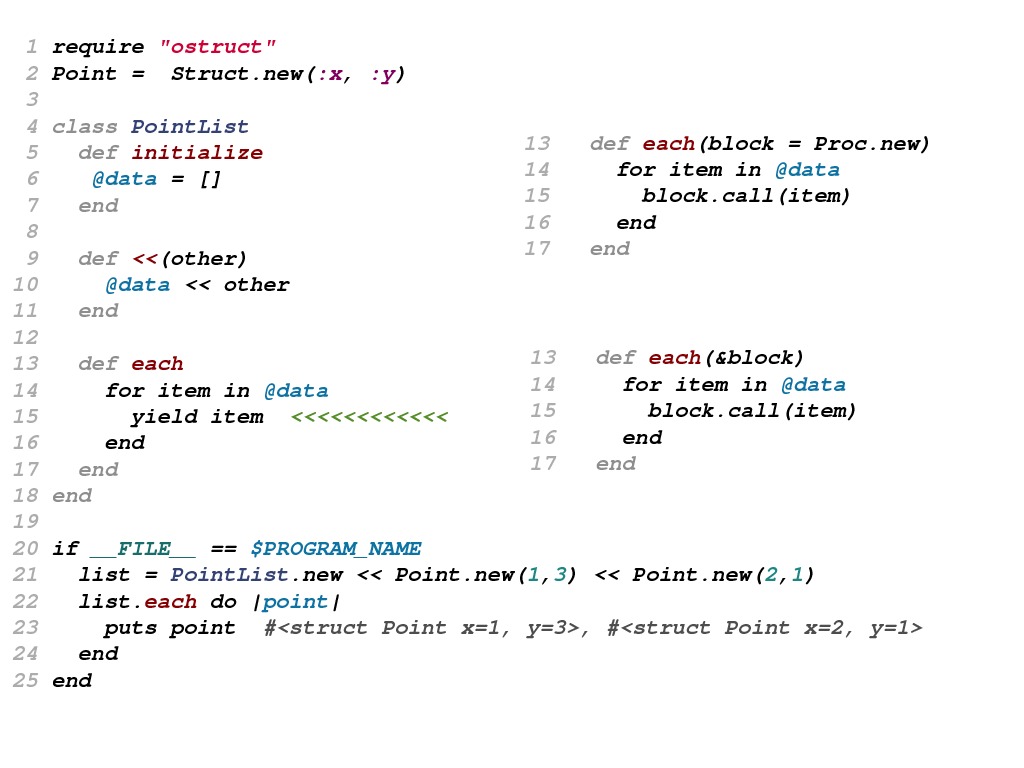

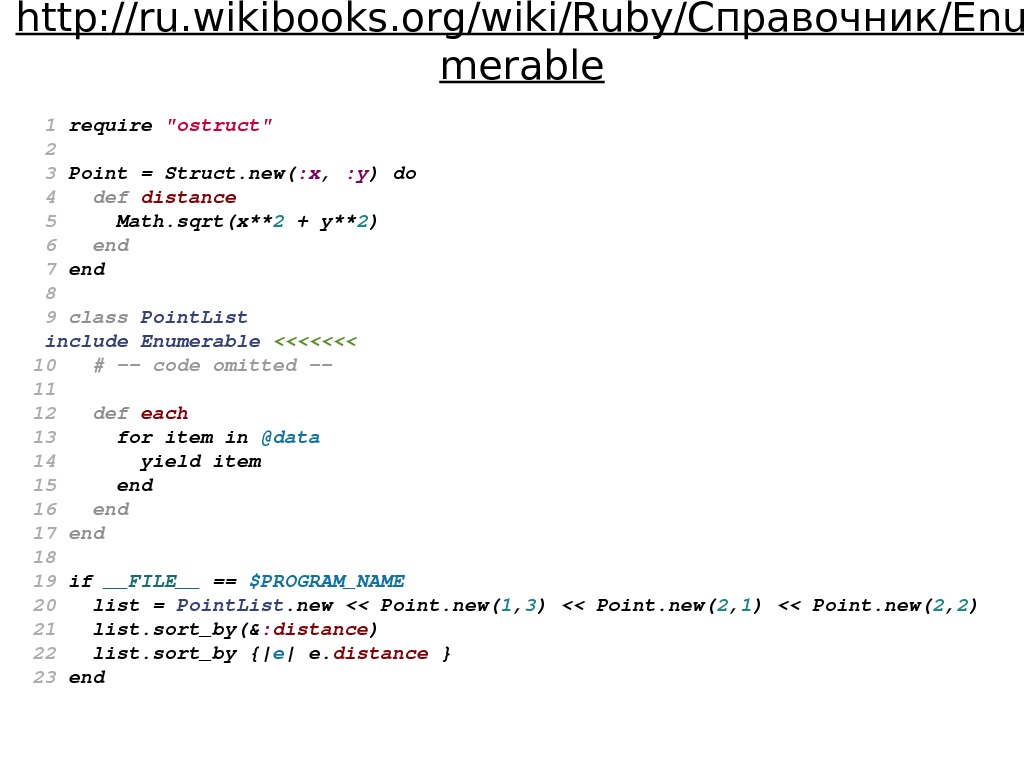
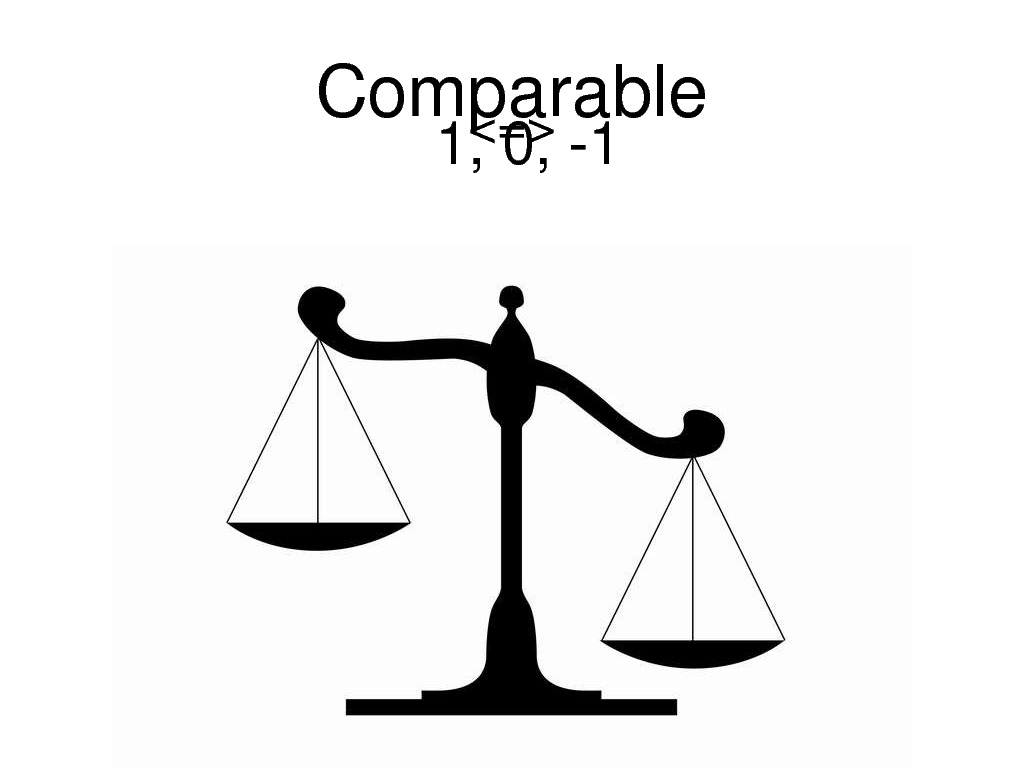
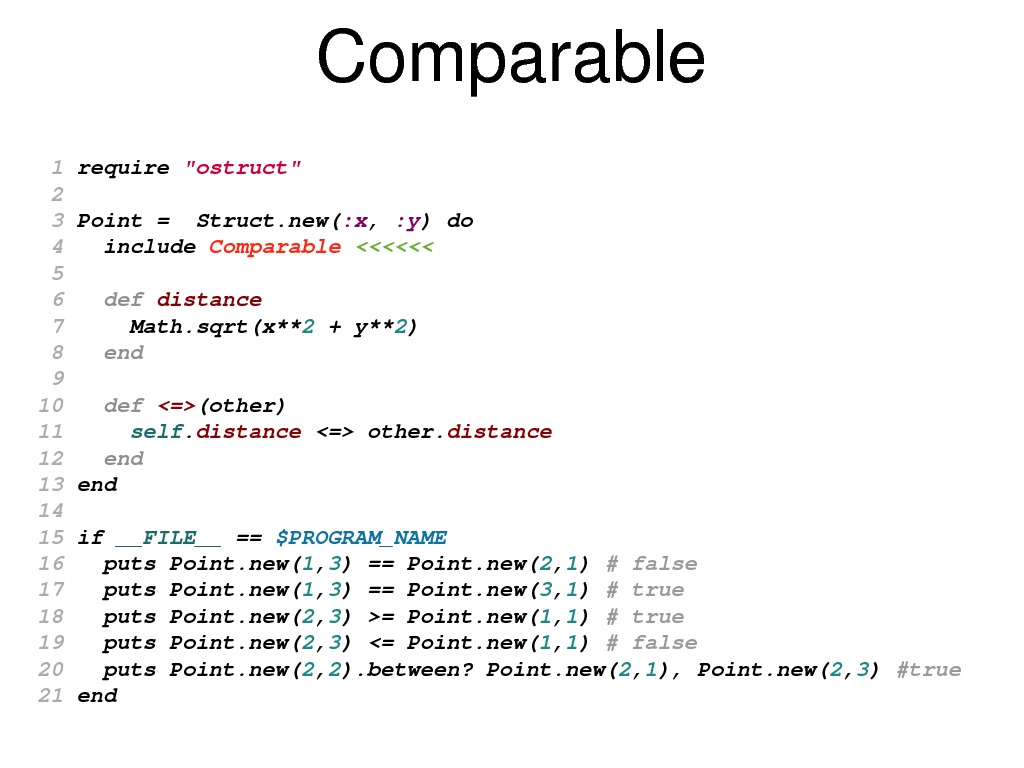
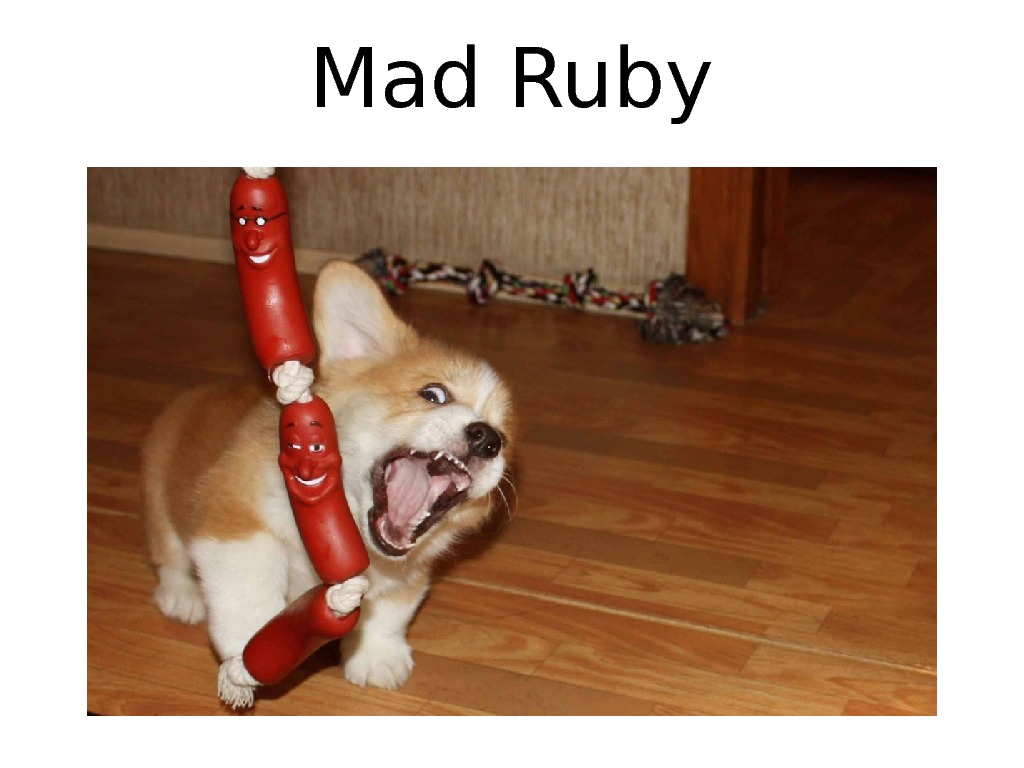
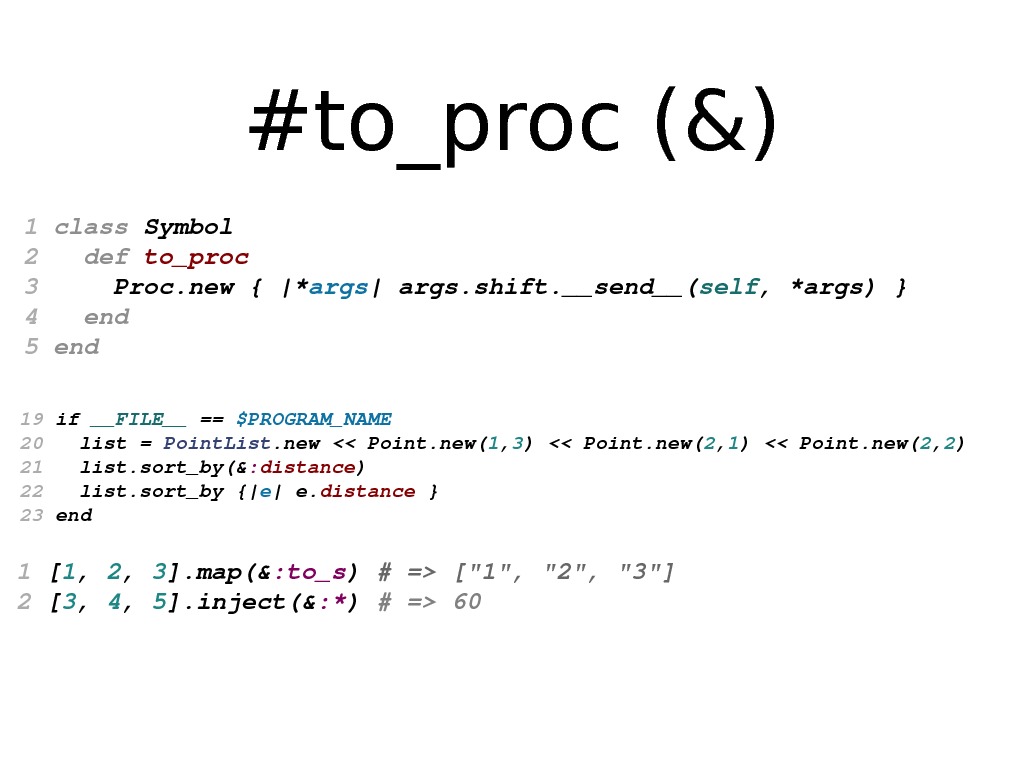
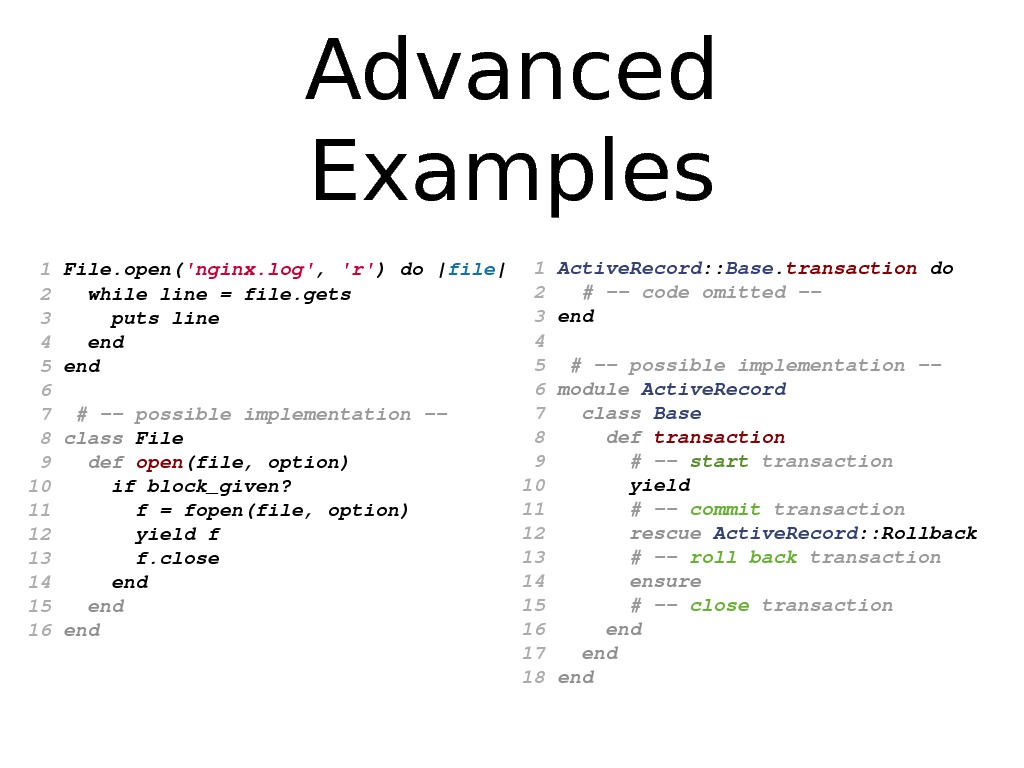

26th_march_-_ruby_by_anton_shemerey.ppt
- Размер: 1.5 Mегабайта
- Количество слайдов: 27
Описание презентации OOP, metaprogramming, blocks, iterators, по слайдам
 OOP, metaprogramming, blocks, iterators, mix-ins, duck typing. Code style
OOP, metaprogramming, blocks, iterators, mix-ins, duck typing. Code style
 Anton Shemerey • https: //github. com/shemerey • https: //twitter. com/shemerey • https: //www. facebook. com/shemer ey • https: //www. linkedin. com/in/sheme rey • shemerey@gmail. com • etc.
Anton Shemerey • https: //github. com/shemerey • https: //twitter. com/shemerey • https: //www. facebook. com/shemer ey • https: //www. linkedin. com/in/sheme rey • shemerey@gmail. com • etc.
 Code style • https: //github. com/bbatsov/ruby-st yle-guide • https: //github. com/bbatsov/rails-st yle-guide • Use two spaces per tab! • explicit “return” — is evil
Code style • https: //github. com/bbatsov/ruby-st yle-guide • https: //github. com/bbatsov/rails-st yle-guide • Use two spaces per tab! • explicit “return” — is evil
 OOP — Everything is object, not quite but still. . .
OOP — Everything is object, not quite but still. . .
 “ hello” — this is object too 1 2 a= «hello» #instance 3 b=a. dup #newobject 4 5 #instancemethod(forobject) 6 class <«helloworld» 17 b. to_s #=>»hello» 18 a. methodsb. methods #=>[: say_hello] 19 a. class. methodsb. class. methods #=>[]1 2 def a. to_s 3 » #{ self } world» 4 end 5 6 def a. say_hello 7 self. to_s 8 end
“ hello” — this is object too 1 2 a= «hello» #instance 3 b=a. dup #newobject 4 5 #instancemethod(forobject) 6 class <«helloworld» 17 b. to_s #=>»hello» 18 a. methodsb. methods #=>[: say_hello] 19 a. class. methodsb. class. methods #=>[]1 2 def a. to_s 3 » #{ self } world» 4 end 5 6 def a. say_hello 7 self. to_s 8 end
![42 - this is object too • 42. instance_variables # = [] • 42. instance_variable_set(: 42 - this is object too • 42. instance_variables # = [] • 42. instance_variable_set(:](/docs//26th_march_-_ruby_by_anton_shemerey_images/26th_march_-_ruby_by_anton_shemerey_5.jpg) 42 — this is object too • 42. instance_variables # => [] • 42. instance_variable_set(: @hello, ‘world’) • 42. instance_variables # => [: @hello] • 42. object_id # =>
42 — this is object too • 42. instance_variables # => [] • 42. instance_variable_set(: @hello, ‘world’) • 42. instance_variables # => [: @hello] • 42. object_id # =>
![true - this is object too • true. instance_variables # = [] • true. instance_variable_set(: true - this is object too • true. instance_variables # = [] • true. instance_variable_set(:](/docs//26th_march_-_ruby_by_anton_shemerey_images/26th_march_-_ruby_by_anton_shemerey_6.jpg) true — this is object too • true. instance_variables # => [] • true. instance_variable_set(: @false, true) • true. instance_variables # => [: @false • true. object_id # => 2 • false. object_id # => 0 • nil. object_id # =>
true — this is object too • true. instance_variables # => [] • true. instance_variable_set(: @false, true) • true. instance_variables # => [: @false • true. object_id # => 2 • false. object_id # => 0 • nil. object_id # =>
 Class 3 class Point 4 def initialize (x, y) 5 @x , @y =x, y 6 end 7 end 8 9 if __FILE__ == $PROGRAM_NAME 10 puts Point. new( 1 , 10 ). inspect # 11 end
Class 3 class Point 4 def initialize (x, y) 5 @x , @y =x, y 6 end 7 end 8 9 if __FILE__ == $PROGRAM_NAME 10 puts Point. new( 1 , 10 ). inspect # 11 end
 attribute reader/writer 1 class Point 2 def initialize (x) 3 @x =x 4 end 5 6 def x 7 @x 8 end 9 10 def x= (x) 11 @x =x 12 end 13 end 14 1 class Point 2 attr_accessor : x 3 4 def initialize ( x ) 5 @ x = x 6 end 7 end
attribute reader/writer 1 class Point 2 def initialize (x) 3 @x =x 4 end 5 6 def x 7 @x 8 end 9 10 def x= (x) 11 @x =x 12 end 13 end 14 1 class Point 2 attr_accessor : x 3 4 def initialize ( x ) 5 @ x = x 6 end 7 end
![1 module Read. Write 2 def rw (*params) # params = [: x, : y] 1 module Read. Write 2 def rw (*params) # params = [: x, : y]](/docs//26th_march_-_ruby_by_anton_shemerey_images/26th_march_-_ruby_by_anton_shemerey_9.jpg) 1 module Read. Write 2 def rw (*params) # params = [: x, : y] 3 params. eachdo| attr | 4 define_methodattrdo #defx 5 instance_variable_get : «@ #{attr} » #@x 6 end #end 7 8 define_method : » #{attr} =(val)» do #defx=(val) 9 instance_variable_set : «@ #{attr} =» , val #@x=val 10 end #end 11 end 12 end 13 end 14 15 class Object 16 extend Read. Write 17 end 18 19 class Point 20 rw : x , : y 21 22 def initialize (x) 23 @x =x 24 end 25 end
1 module Read. Write 2 def rw (*params) # params = [: x, : y] 3 params. eachdo| attr | 4 define_methodattrdo #defx 5 instance_variable_get : «@ #{attr} » #@x 6 end #end 7 8 define_method : » #{attr} =(val)» do #defx=(val) 9 instance_variable_set : «@ #{attr} =» , val #@x=val 10 end #end 11 end 12 end 13 end 14 15 class Object 16 extend Read. Write 17 end 18 19 class Point 20 rw : x , : y 21 22 def initialize (x) 23 @x =x 24 end 25 end
 Class / Module • Module. ancestors • # => [ Module , Object, Kernel, Basic. Object] • Class. ancestors • # => [Class, Module , Object, Kernel, Basic. Object]
Class / Module • Module. ancestors • # => [ Module , Object, Kernel, Basic. Object] • Class. ancestors • # => [Class, Module , Object, Kernel, Basic. Object]
 class A; end • new • inheritance • include class A — computer says no • extend class A — computer says no • computer says no — http: //bit. ly/g. QX
class A; end • new • inheritance • include class A — computer says no • extend class A — computer says no • computer says no — http: //bit. ly/g. QX
 module B; end • new — computer says no • inheritance — computer says no • include B • extend B • computer says no — http: //bit. ly/g. QX
module B; end • new — computer says no • inheritance — computer says no • include B • extend B • computer says no — http: //bit. ly/g. QX
 include/extend 1 module M 2 def inst_method 3 «instance» 4 end 5 end 6 7 8 class Point 9 include M 10 end 11 12 if __FILE__ == $PROGRAM_NAME 13 puts Point. new. inst_method 14 end 15 1 module M 2 def cl_method 3 «instance» 4 end 5 end 6 7 8 class Point 9 extend M 10 end 11 12 if __FILE__ == $PROGRAM_NAME 13 puts Point. cl_method 14 end
include/extend 1 module M 2 def inst_method 3 «instance» 4 end 5 end 6 7 8 class Point 9 include M 10 end 11 12 if __FILE__ == $PROGRAM_NAME 13 puts Point. new. inst_method 14 end 15 1 module M 2 def cl_method 3 «instance» 4 end 5 end 6 7 8 class Point 9 extend M 10 end 11 12 if __FILE__ == $PROGRAM_NAME 13 puts Point. cl_method 14 end
 1 module M 2 def self. included (base) 3 base. extend( Class. Methods ) 4 end 5 6 #instancemethods 7 8 module Class. Methods 9 #classmethods 10 end 11 end 12 13 14 class Point 15 include M 16 17 def initialize (x) 18 @x =x 19 end 20 end
1 module M 2 def self. included (base) 3 base. extend( Class. Methods ) 4 end 5 6 #instancemethods 7 8 module Class. Methods 9 #classmethods 10 end 11 end 12 13 14 class Point 15 include M 16 17 def initialize (x) 18 @x =x 19 end 20 end
 Classes and Objects • More information: http: //bit. ly/YZBfmp
Classes and Objects • More information: http: //bit. ly/YZBfmp
![Ruby Blocks 1 w[firstsecondthird]. each do |item| 2 item. capitalize 3 end 4 5 w[firstsecondthird]. each Ruby Blocks 1 w[firstsecondthird]. each do |item| 2 item. capitalize 3 end 4 5 w[firstsecondthird]. each](/docs//26th_march_-_ruby_by_anton_shemerey_images/26th_march_-_ruby_by_anton_shemerey_16.jpg) Ruby Blocks 1 %w[firstsecondthird]. each do |item| 2 item. capitalize 3 end 4 5 %w[firstsecondthird]. each { |i|i. upcase } 6 7 %w[firstsecondthird]. each <<=block
Ruby Blocks 1 %w[firstsecondthird]. each do |item| 2 item. capitalize 3 end 4 5 %w[firstsecondthird]. each { |i|i. upcase } 6 7 %w[firstsecondthird]. each <<=block
 Yield
Yield
 1 require «ostruct» 2 Point=Struct. new( : x , : y ) 3 4 class Point. List 5 def initialize 6 @data =[] 7 end 8 9 def << (other) 10 @data <<other 11 end 12 13 def each 14 foritemin @data 15 yield item <<<<<< 16 end 17 end 18 end 19 20 if __FILE__ == $PROGRAM_NAME 21 list= Point. List. new<<Point. new( 1 , 3 )<<Point. new( 2 , 1 ) 22 list. each do| point | 23 putspoint #, # 24 end 25 end 13 def each (&block) 14 foritemin @data 15 block. call(item) 16 end 17 end 13 def each (block=Proc. new) 14 foritemin @data 15 block. call(item) 16 end 17 end
1 require «ostruct» 2 Point=Struct. new( : x , : y ) 3 4 class Point. List 5 def initialize 6 @data =[] 7 end 8 9 def << (other) 10 @data <<other 11 end 12 13 def each 14 foritemin @data 15 yield item <<<<<< 16 end 17 end 18 end 19 20 if __FILE__ == $PROGRAM_NAME 21 list= Point. List. new<<Point. new( 1 , 3 )<<Point. new( 2 , 1 ) 22 list. each do| point | 23 putspoint #, # 24 end 25 end 13 def each (&block) 14 foritemin @data 15 block. call(item) 16 end 17 end 13 def each (block=Proc. new) 14 foritemin @data 15 block. call(item) 16 end 17 end
 Enumerable
Enumerable
 1 require «ostruct» 2 3 Point=Struct. new( : x , : y )do 4 def distance 5 Math. sqrt(x** 2 +y** 2 ) 6 end 7 end 8 9 class Point. List include. Enumerable <<<<<<< 10 #codeomitted 11 12 def each 13 foritemin @data 14 yield item 15 end 16 end 17 end 18 19 if __FILE__ == $PROGRAM_NAME 20 list= Point. List. new<<Point. new( 1 , 3 )<<Point. new( 2 , 1 )<<Point. new( 2 , 2 ) 21 list. sort_by(& : distance ) 22 list. sort_by{| e |e. distance } 23 endhttp: //ru. wikibooks. org/wiki/Ruby/Справочник/Enu merable
1 require «ostruct» 2 3 Point=Struct. new( : x , : y )do 4 def distance 5 Math. sqrt(x** 2 +y** 2 ) 6 end 7 end 8 9 class Point. List include. Enumerable <<<<<<< 10 #codeomitted 11 12 def each 13 foritemin @data 14 yield item 15 end 16 end 17 end 18 19 if __FILE__ == $PROGRAM_NAME 20 list= Point. List. new<<Point. new( 1 , 3 )<<Point. new( 2 , 1 )<<Point. new( 2 , 2 ) 21 list. sort_by(& : distance ) 22 list. sort_by{| e |e. distance } 23 endhttp: //ru. wikibooks. org/wiki/Ruby/Справочник/Enu merable
 Comparable 1, 0,
Comparable 1, 0,
 1 require «ostruct» 2 3 Point=Struct. new( : x , : y )do 4 include Comparable <<<<<< 5 6 def distance 7 Math. sqrt(x** 2 +y** 2 ) 8 end 9 10 def (other) 11 self. distance other. distance 12 end 13 end 14 15 if __FILE__ == $PROGRAM_NAME 16 puts. Point. new( 1 , 3 )==Point. new( 2 , 1 ) #false 17 puts. Point. new( 1 , 3 )==Point. new( 3 , 1 ) #true 18 puts. Point. new( 2 , 3 )>=Point. new( 1 , 1 ) #true 19 puts. Point. new( 2 , 3 )<=Point. new( 1 , 1 ) #false 20 puts. Point. new( 2 , 2 ). between? Point. new( 2 , 1 ), Point. new( 2 , 3 ) #true 21 end Comparable
1 require «ostruct» 2 3 Point=Struct. new( : x , : y )do 4 include Comparable <<<<<< 5 6 def distance 7 Math. sqrt(x** 2 +y** 2 ) 8 end 9 10 def (other) 11 self. distance other. distance 12 end 13 end 14 15 if __FILE__ == $PROGRAM_NAME 16 puts. Point. new( 1 , 3 )==Point. new( 2 , 1 ) #false 17 puts. Point. new( 1 , 3 )==Point. new( 3 , 1 ) #true 18 puts. Point. new( 2 , 3 )>=Point. new( 1 , 1 ) #true 19 puts. Point. new( 2 , 3 )<=Point. new( 1 , 1 ) #false 20 puts. Point. new( 2 , 2 ). between? Point. new( 2 , 1 ), Point. new( 2 , 3 ) #true 21 end Comparable
 Mad Ruby
Mad Ruby
 #to_proc (&) 1 class Symbol 2 def to_proc 3 Proc. new{|* args |args. shift. __send__( self , *args)} 4 end 5 end 19 if __FILE__ == $PROGRAM_NAME 20 list= Point. List. new<<Point. new( 1 , 3 )<<Point. new( 2 , 1 )<[«1», «2», «3»] 2 [ 3 , 4 , 5 ]. inject(& : * ) #=>
#to_proc (&) 1 class Symbol 2 def to_proc 3 Proc. new{|* args |args. shift. __send__( self , *args)} 4 end 5 end 19 if __FILE__ == $PROGRAM_NAME 20 list= Point. List. new<<Point. new( 1 , 3 )<<Point. new( 2 , 1 )<[«1», «2», «3»] 2 [ 3 , 4 , 5 ]. inject(& : * ) #=>
 Advanced Examples 1 File. open( ‘nginx. log’ , ‘r’ )do| file | 2 whileline=file. gets 3 putsline 4 end 5 end 6 7 #possibleimplementation 8 class File 9 def open (file, option) 10 ifblock_given? 11 f=fopen(file, option) 12 yield f 13 f. close 14 end 15 end 16 end 1 Active. Record : : Base. transaction do 2 #codeomitted 3 end 4 5 #possibleimplementation 6 module Active. Record 7 class Base 8 def transaction 9 # start transaction 10 yield 11 # commit transaction 12 rescue Active. Record : : Rollback 13 # rollback transaction 14 ensure 15 # close transaction 16 end 17 end 18 end
Advanced Examples 1 File. open( ‘nginx. log’ , ‘r’ )do| file | 2 whileline=file. gets 3 putsline 4 end 5 end 6 7 #possibleimplementation 8 class File 9 def open (file, option) 10 ifblock_given? 11 f=fopen(file, option) 12 yield f 13 f. close 14 end 15 end 16 end 1 Active. Record : : Base. transaction do 2 #codeomitted 3 end 4 5 #possibleimplementation 6 module Active. Record 7 class Base 8 def transaction 9 # start transaction 10 yield 11 # commit transaction 12 rescue Active. Record : : Rollback 13 # rollback transaction 14 ensure 15 # close transaction 16 end 17 end 18 end
 The End
The End

